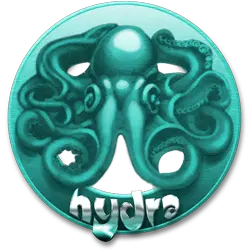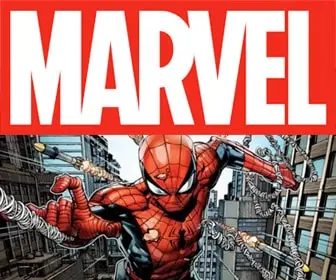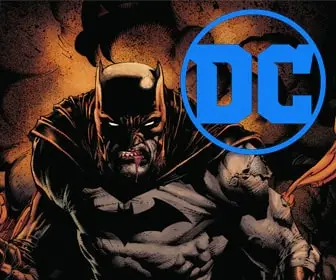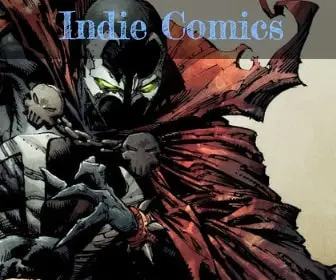
Beyond the Mask: The Story of Black Panther, Marvel’s Groundbreaking Superhero
Black Panther, one of Marvel’s most iconic superheroes, made his debut in 1966 in the pages of “Fantastic Four” #52. Created by writer Stan Lee and artist Jack Kirby, Black Panther holds a unique place in comic book history as the first mainstream black superhero. His introduction marked a significant milestone in diversifying the superhero genre and providing representation for black readers.
Black Panther, also known as T’Challa, hails from the fictional African nation of Wakanda, a technologically advanced and culturally rich country. Raised as a prince and heir to the throne, T’Challa is not only a hero but also a king. His dual role as both a protector and a leader adds depth and complexity to his character, making him an intriguing and beloved figure among fans.
The origins of Black Panther are deeply rooted in the history and traditions of Wakanda. In the Marvel Universe, Wakanda is known for its vast reserves of Vibranium, a rare and powerful metal. This resource has played a significant role in shaping Wakanda’s advanced technology and its ability to maintain its independence from the outside world.
T’Challa’s journey as Black Panther involves not only protecting his nation but also grappling with personal challenges and conflicts. He strives to balance his responsibilities as a superhero with his duties as a ruler, often navigating the complexities of political intrigue and global threats.
Black Panther’s character and origins are a testament to the rich storytelling and cultural representation that Marvel Comics has championed over the years. As we delve deeper into the world of Black Panther, we discover a hero whose impact extends beyond the pages of comic books, resonating with audiences around the world and inspiring a sense of pride and empowerment.
The Creation of Black Panther
Stan Lee and Jack Kirby first introduced the character of Black Panther in Fantastic Four #52 in July 1966. Created during the height of the civil rights movement, Black Panther was a groundbreaking character, as he was the first black superhero in mainstream comic books. Inspired by the tumultuous political and social climate of the time, Lee and Kirby sought to create a powerful and dignified black superhero who would challenge stereotypes and serve as a symbol of empowerment.
Black Panther, also known as T’Challa, hails from the fictional African nation of Wakanda, a technologically advanced and culturally rich nation untouched by colonialism. As the king of Wakanda, T’Challa not only possesses incredible physical abilities and combat skills but also benefits from the country’s abundant resource, Vibranium, which enhances his strength and agility.
Stan Lee and Jack Kirby’s creation of Black Panther marked a significant milestone in comic book history, as it broke barriers and gave representation to black readers who had long been underrepresented in the genre. The character’s introduction paved the way for more diverse and inclusive storytelling in the comic book industry, influencing future generations of creators and readers alike.
First Appearance
Black Panther made his highly anticipated debut in “Fantastic Four” #52, which was released in July 1966. Created by the legendary duo of writer Stan Lee and artist Jack Kirby, this issue marked the introduction of the groundbreaking character to the Marvel Universe.
In the story, the Fantastic Four find themselves confronted by a mysterious and powerful figure known as the Black Panther. This enigmatic superhero from the African nation of Wakanda captures the attention of readers with his sleek black costume, advanced technology, and impressive combat skills. With his agile movements and strategic thinking, Black Panther proves to be a formidable ally and a force to be reckoned with.
The introduction of Black Panther in “Fantastic Four” #52 was met with great acclaim and excitement. Not only did the character bring a fresh and unique perspective to the Marvel Universe, but he also became an instant fan favorite. His rich backstory, regal demeanor, and dedication to protecting his homeland resonated with readers, establishing Black Panther as a significant and influential figure in the comic book world. This landmark issue laid the foundation for the character’s future success, leading to his own acclaimed solo series and ultimately his prominent role in Marvel’s cinematic universe.
Wakanda
Wakanda, the fictional African nation that serves as the home of Black Panther, is a vibrant and culturally rich setting that has captured the imaginations of readers for decades. Nestled deep within the heart of Africa, Wakanda is depicted as a technologically advanced nation hidden from the outside world, thanks to its abundant reserves of the rare and powerful metal known as Vibranium.
One of the key elements that sets Wakanda apart is its blend of tradition and innovation. The nation’s capital, Birnin Zana, showcases a stunning fusion of ancient African architecture and cutting-edge technology. The towering skyscrapers coexist harmoniously with sprawling marketplaces and lush landscapes, representing the harmonious balance between Wakanda’s rich history and its forward-thinking advancements.
Wakanda’s culture is deeply rooted in its tribal traditions and customs, with the various tribes playing a significant role in the nation’s governance and daily life. The Dora Milaje, an elite group of female warriors, exemplify the strength and fierce loyalty of Wakanda. These skilled fighters serve as the king’s personal bodyguards and symbolize the nation’s commitment to protecting its people.
The heart-shaped herb, a unique plant native to Wakanda, plays a vital role in the Black Panther’s powers. Consuming the herb grants enhanced strength, agility, and heightened senses, enabling the Black Panther to protect Wakanda and its people with unparalleled prowess. This sacred herb, guarded by the Panther Tribe, represents the mystical and spiritual connection between the Wakandan people and their ancestral heritage.
Through the depiction of Wakanda’s rich culture and history, the Black Panther comics have provided readers with a captivating and immersive experience. The attention to detail in showcasing Wakanda’s customs, architecture, and natural beauty adds depth and authenticity to the narrative, further cementing the nation as an integral part of Black Panther’s enduring legacy.
T’Challa
T’Challa, also known as the Black Panther, is the current bearer of the mantle in the Marvel Comics universe. Born into the royal family of Wakanda, T’Challa inherits the title of Black Panther and the responsibilities that come with it after the death of his father, T’Chaka. As the king of Wakanda, T’Challa is not only the protector of his nation but also the defender of its people.
T’Challa’s journey as the Black Panther is characterized by his unwavering commitment to his people and his determination to uphold Wakanda’s traditions and values. Trained from a young age in various forms of combat and armed with his intellect and strategic mind, T’Challa is a formidable warrior who possesses enhanced physical abilities thanks to the heart-shaped herb.
Beyond his physical prowess, T’Challa is also known for his intelligence and leadership. As a skilled tactician and diplomat, he navigates the complex political landscape of both the superhero community and global affairs, all while ensuring that Wakanda remains safe from external threats.
T’Challa’s portrayal as the Black Panther showcases his internal struggle between his duty as a king and his desire to protect the world at large. Throughout his comic book history, T’Challa has faced numerous challenges and adversaries, both within and outside Wakanda, that have tested his resolve and shaped his character into the iconic hero he is today.
As the current Black Panther, T’Challa continues to be a symbol of strength, honor, and cultural pride. His presence in the Marvel Universe not only represents the power and resilience of Wakanda but also serves as a source of inspiration for readers around the world.
Abilities
T’Challa, as the Black Panther, possesses a unique set of character traits, skills, and abilities that contribute to his iconic status in the Marvel Comics universe. Here are some notable aspects of T’Challa’s character:
- Intelligence and Wisdom: T’Challa is renowned for his intellect and strategic thinking. As the ruler of Wakanda, he combines his scientific knowledge and wisdom with his combat skills, allowing him to make calculated decisions and outsmart his enemies.
- Enhanced Physical Abilities: Through the consumption of the heart-shaped herb, T’Challa gains superhuman strength, agility, speed, endurance, and reflexes. These enhanced physical attributes make him a formidable hand-to-hand combatant, capable of holding his own against even the most powerful adversaries.
- Vibranium Suit and Technology: T’Challa’s Black Panther suit is made of vibranium, a rare and indestructible metal found only in Wakanda. The suit enhances his physical abilities, provides protection against various threats, and includes advanced technology such as energy daggers, energy shields, and retractable claws.
- Mastery of Martial Arts: T’Challa is a highly skilled martial artist, having trained extensively in various combat disciplines. He combines his physical abilities with his knowledge of different fighting styles, making him a formidable opponent in close-quarters combat.
- Spiritual Connection: As the Black Panther, T’Challa is not only a physical warrior but also a spiritual one. He maintains a deep connection with the Panther God, Bast, which grants him enhanced senses, increased intuition, and access to the knowledge and history of previous Black Panthers.
T’Challa’s unique combination of intelligence, physical prowess, advanced technology, and spiritual connection sets him apart as a well-rounded and formidable hero. His abilities and skills have made him a key member of the Avengers and a significant figure in the Marvel Universe.
Cultural Significance
The cultural significance of Black Panther cannot be overstated. As the first mainstream black superhero in American comic books, Black Panther broke barriers and became a symbol of representation and empowerment for black readers. T’Challa’s status as the ruler of Wakanda, a technologically advanced and culturally rich African nation, showcased a positive and multifaceted depiction of African culture that was rare in mainstream media at the time.
Black Panther’s impact extended beyond the comic book pages and into popular culture. The character gained further recognition with the release of the Marvel Cinematic Universe film “Black Panther” in 2018, directed by Ryan Coogler and starring Chadwick Boseman as T’Challa. The film became a cultural phenomenon, celebrated for its groundbreaking representation, compelling storytelling, and stunning visual aesthetics. It shattered box office records and received critical acclaim, resonating with audiences worldwide and proving the immense demand for diverse and inclusive storytelling.
Black Panther’s cultural significance also extends to its exploration of important themes. The character and the world of Wakanda have been used to address issues such as identity, heritage, colonialism, racial equality, and the responsibility of those in power to uplift their communities. The rich tapestry of Wakandan culture, its vibrant traditions, and the portrayal of strong and intelligent black characters have inspired a new generation of readers and viewers.
Moreover, Black Panther’s success has paved the way for more diverse representation in the comic book industry and entertainment as a whole. It has proven that stories featuring characters of different backgrounds can resonate with a wide audience and have a significant impact on popular culture. The character’s cultural significance continues to grow, serving as a source of inspiration and a catalyst for positive change.
Collectors
Some of the most collected comic books featuring the Black Panther include:
- Fantastic Four #52 (1966): This issue marks the first appearance of the Black Panther in mainstream comic books. It is a highly coveted and valuable comic book, as it introduces the character to the Marvel Universe.
- Jungle Action #6-24 (1973-1976): This series featured an extended storyline focusing on the Black Panther and his adventures in the fictional nation of Wakanda. The issues from this run, particularly “Jungle Action” #6, are popular among collectors.
- Black Panther (1998 series) #1: This comic book series, written by Christopher Priest, brought a new level of depth and complexity to the Black Panther character. The first issue of this series is often sought after by collectors.
- Black Panther (2005 series) #1: This series, written by Reginald Hudlin, gained significant attention and popularity due to its tie-in with the broader Marvel Universe and the character’s increased prominence. The first issue of this series is a favorite among collectors.
- Black Panther (2018 series) #1: Written by Ta-Nehisi Coates, this series has garnered critical acclaim for its exploration of socio-political themes and its immersive storytelling. The first issue of this series has become highly sought after by collectors.
Black Panther’s enduring popularity and cultural importance stem from its groundbreaking representation, captivating storytelling, and the cultural impact it has made over the years. The character has become a symbol of empowerment, breaking barriers, and challenging traditional narratives. Black Panther’s rich history, cultural significance, and diverse representation have resonated with audiences worldwide, inspiring and empowering individuals of all backgrounds.
T’Challa’s journey as the Black Panther, his role as the leader of Wakanda, and his commitment to justice and equality have captured the hearts and minds of fans. The character’s enduring popularity is a testament to the power of storytelling that goes beyond mere entertainment. Black Panther represents a larger movement for inclusivity, representation, and social progress in media, with its impact reaching far beyond the realm of comic books.
As the Black Panther continues to make an impact in the comic book pages, films, and various forms of media, its cultural importance remains steadfast. The character and the world of Wakanda have become touchstones for diversity, empowerment, and the celebration of African culture. Black Panther has forever changed the landscape of superhero narratives, proving that stories rooted in diverse experiences have the power to resonate and inspire on a global scale.













